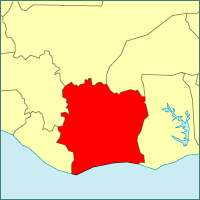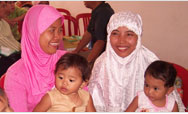Cote D'Ivoire - Complex Emergency

|
| Map of Cote D'Ivoire |
Regional Team: SWAN
Disaster Declared: 12/05/2005
Brief Description: Since a military coup occurred on December 25, 1999, Côte d'Ivoire has been marked by three
years of continuous political and civil conflict, creating a steady decline in access to basic services, particularly
in the northern and western regions. Negotiations and various peace agreements have yet to bring a resolution of the
ongoing conflict. The country remains divided into three parts: the government-held south, the opposition Forces
Nouvelles-held north, and the area between the two known as the Zone of Confidence (ZOC), where U.N. and French
peacekeepers are responsible for maintaining peace. The cancellation of the October 2005 elections and President
Laurent Gbagbo's decision to remain in power have further aggravated the political turmoil.
During protests in mid-January 2006, youth supporters of President Gbagbo known as the Young Patriots burned U.N.
property and stole food commodities from U.N. World Food Program (WFP) warehouses located in the western city of
Guiglo. In addition, the protesters, fueled by incendiary radio messages, attacked and looted at least 12 offices
of humanitarian agencies and international non-governmental organizations (NGOs). The violence also included an
attack on a U.N. base that left five protesters dead. The attacks have had serious repercussions on humanitarian
operations on the ground, including the evacuation of international and national humanitarian staff members to safe
zones. Ongoing security concerns have prevented the return of humanitarian staff to Guiglo, leaving vulnerable
populations, including Liberian refugees and internally displaced third country nationals, with little support.
FY2006
Back to Top ^
|


